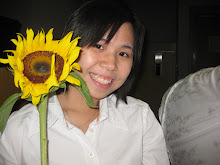Benjamine Mukakajuga’s Story: Brought Out of Grief
In a wash of evening sunlight in the northeastern province of Gicumbi, Benjamine Mukakajuga, 38, stands in her golden wheat field, beaming with a broad, gap-toothed smile. In a proud and victorious manner, she sweeps her arm in the air, gesturing to a 12-acre parcel of jutting green crops.
Benjamine Mukakajuga cares for six children and works a 12-acre parcel of land despite being HIV-positive.“All of this that you see was acquired because of that cow. Before this, I had no land.” In 2002, Mukakajuga began to feel ill and tested positive for HIV/AIDS. The devastating news only added to the severe challenges she faced—caring for two of her biological children and four other orphans from the genocide. Her husband abandoned her. Like others who suffer from HIV, she felt stigmatized because she was weak, sick, and couldn’t support herself, harboring a deep-seated feeling that she was a social burden.
That same year, she became a beneficiary of a cow that soon began supplying more than five gallons of milk per day and has since birthed three calves, including the one she passed on. Mukakajuga saw the opportunity and wasted no time turning the proceeds from her milk, which drew a competitive price at market, into food for her children and a regimen of ARVs for herself. Over time, the medication and a diet of milk and homegrown vitamin-rich vegetables have significantly improved her health.
“I am now feeling healthy, looking good and positive. I am moving on!” she says.
On the way back to her house, Mukakajuga points to another sign of her progress: a series of long wooden poles strewn on the ground, ready to be constructed into her second cow shed.
Mukakajuga named her first cow Imaragahinda, a word that means “brought out of grief.” And so much of what she has today comes from Imaragahinda. Thanks to the benefits of one animal and a means for sustainable living, Benjamine went from a decimated outlook on life to building genuine hope for tomorrow.
“I would not be alive without this cow,” she says. “This cow is my husband. It took away my grief. I drink milk every day and all the work around me is because of my cow. With it, I can afford to hire people to help me and care for my well-being. In brief, my cow is my life.”
Source: http://www.heifer.org/site/c.edJRKQNiFiG/b.3584665/
Everyone, and I mean every red, white, black and brown person, deserves a chance to start afresh in life. We are so fortunate to live in Singapore! Go read more articles on Rwanda. In 1994, a genocide took place which killed 10% of the population, i believe that translates into more than a million Tutsis. There's a movie on it called Hotel Rwanada. Another fact on poverty: The total GDP of the world's poorest 48 countries (ie a QUARTER of the world's nations) is less than the wealth of 3 people combined. [ www.globalissues.org ]
You can make a difference this Christmas! Gather a group of 10, and each fork out US$50 to buy someone out there a heifer. Saaaaaaave up. Dun eat Mac's, give up that extra pair of shoes, that psp game, gifts for him/her! Who says you can't change the world?
Subscribe to:
Post Comments (Atom)

No comments:
Post a Comment